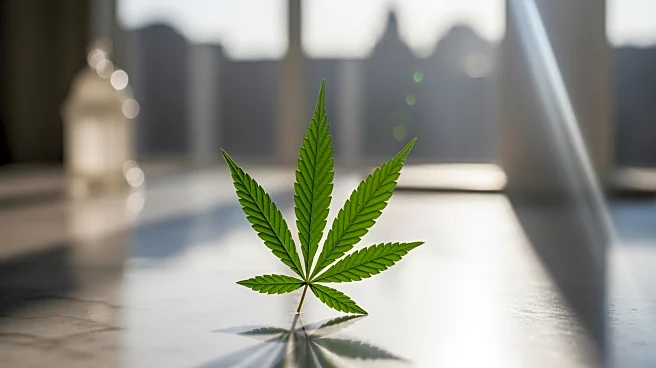What's Happening?
Senator Rand Paul is opposing a provision in a government funding bill that proposes a ban on certain hemp-based products. The bill, aimed at ending the longest government shutdown in U.S. history, includes
a measure to prohibit the sale of intoxicating hemp-derived products like Delta-8 THC. Paul is demanding a vote on an amendment to remove this provision, arguing that it would severely impact the $28 billion hemp industry and result in significant economic losses for states such as Kentucky, Tennessee, and Oregon. The ban is part of a broader legislative effort to regulate hemp products, which some claim are being sold without proper age verification.
Why It's Important?
The proposed ban on hemp-derived products could have significant economic repercussions, potentially eliminating up to 80% of revenue for hemp producers. This would not only affect the industry but also result in a loss of approximately $1.5 billion in tax revenue, impacting states heavily involved in hemp production. The legislation has sparked concern among industry representatives who fear it could give foreign producers an advantage. The debate highlights ongoing tensions between regulatory efforts and economic interests, with potential implications for small businesses and farmers who have invested in hemp production since its legalization in 2018.
What's Next?
The Senate is expected to vote on the funding bill soon, with Senator Rand Paul pushing for an amendment to remove the hemp ban provision. If the amendment fails, the ban could take effect, leading to significant changes in the hemp industry. Stakeholders, including industry representatives and lawmakers, are likely to continue lobbying against the ban, emphasizing the need for a study by the USDA to assess the impact of hemp products. The outcome of the vote will determine the future of hemp-derived products in the U.S. market.











